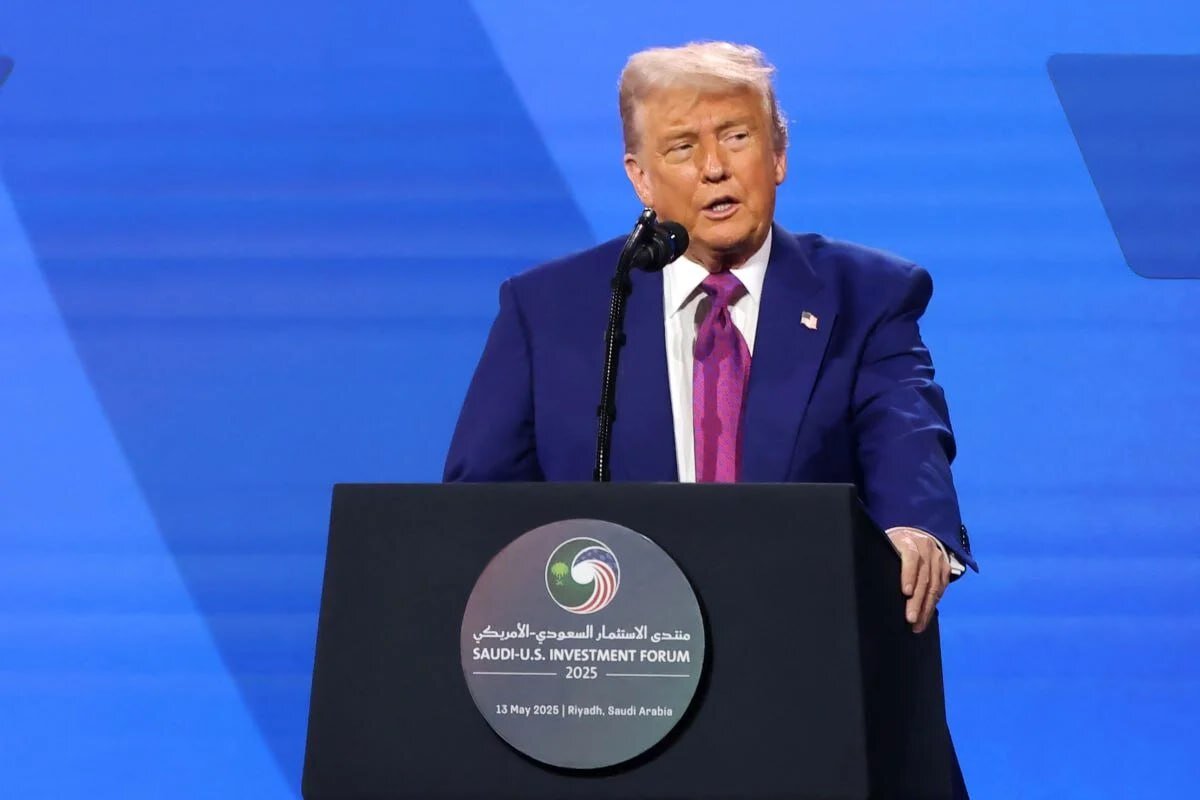Will Washington relinquish control over Lebanon to Riyadh?

SOUTH LEBANON—Analysts are monitoring the repercussions of U.S. President Donald Trump’s visit to the Persian Gulf on the situation in Lebanon. Washington appears to be moving toward clearing the way for Saudi Arabia to impose its guardianship over Lebanon, especially after Trump announced he would lift sanctions on Syria “at Riyadh’s request.”
Trump claimed that “Hezbollah has brought misery to Lebanon and plundered the Lebanese state. Hezbollah’s militia has placed Beirut in tragedy. We stand ready to help Lebanon build a future of economic development and peace with its neighbors.”
Trump’s remarks on Lebanon herald a new phase of pressure on Lebanon to push it toward normalization with the Israeli occupation regime.
It is worth noting that the party that destroyed Lebanon, once known as the Switzerland of the East—and not the Paris of the East, as Trump mistakenly claimed—was not Hezbollah, but rather the same parties that Washington is exploiting today to implement its agenda.
Then, during the 1975-1990 civil war, Hezbollah did not even exist but rather emerged as a reaction to the Israeli invasion of Lebanon in 1982.
Trump left the Persian Gulf with a pocketful of trillions and promises of thousands of investments.
Meanwhile, this money is being withheld from two million starving Palestinians in Gaza, displaced in tents pitched on its burning sands by American-Zionist fire.
It is also withheld from the impoverished peoples of West Asia, held captive by the whims of their treacherous rulers, servants of the Zionist project.
Analysts are also closely monitoring the outcomes of the Arab Summit in Baghdad, particularly regarding the reconstruction of what has been left behind by the ongoing U.S.-led Israeli aggression of Lebanon, mostly in late 2024.
It is worth noting that some Arab countries that have expressed their willingness to assist in the reconstruction workshop, including Iraq, Qatar, Kuwait, Algeria, and even the UAE, have repeatedly emphasized that the obstacle facing them is not primarily related to Washington’s position, but rather to the fact that the Lebanese government has not yet initiated a reconstruction plan.
Informed sources revealed that the Iraqi government is prepared to provide the funds owed to it by the Electricité du Liban (EDL)—estimated at approximately $1.8 billion for fuel—to finance the reconstruction. It is even considering establishing an official Iraqi institution to oversee this project.
Those familiar with the content of the Arab messages that have been reaching Lebanon since the ceasefire on November 27 understand well that Trump spoke on behalf of the Saudi Crown Prince
Mohammed bin Salman who set a fundamental condition for aid to Lebanon: the disarmament of Hezbollah.
Meanwhile, informed sources told the Tehran Times that the unannounced dialogue between President Joseph Aoun and Hezbollah is focused on the issue of Al-Qard al-Hassan, Hezbollah’s banking institution, which Washington is demanding be closed, despite Lebanese officials explaining to their American counterparts the sensitivity of this provocative matter to Hezbollah’s popular base.
Nabih Berri, speaker of the Parliament, responded to the threatening statements made by Morgan Ortagus, Trump’s Deputy Envoy to West Asia, regarding her blatant acknowledgment of Washington’s economic blockade, saying, “Don’t ask about Israel, but ask about America. The Americans are the first to be concerned with a ceasefire, if they truly want to stop it.”
On Sunday, May 18, the Lebanese are awaiting the results of the third round of municipal and mayoral elections in the capital, Beirut, and the Bekaa Valley, coupled with attempts to exploit them politically as Washington and Riyadh are seeking to transform Hezbollah and its allies into a party unable to obstruct any major political decision, following their failure to remove them from the government.
Contrary to expectations, the Americans and Saudis are surprised by Hezbollah’s handling of the foreign pressure and its commitment to UN Resolution 1701 regarding the south of the Litani River, where it did not initiate any response against the enemy.
As the Ummah is marking the Nakba Day, other bitter catastrophes befell them due to the ill-performance of their rulers; the Palestinians affirm their steadfastness and refusal to surrender, along with the honourable people of Yemen, Lebanon, and Iran, who chose resistance, certain that the American-Zionist bullying will not last.
Leave a Comment